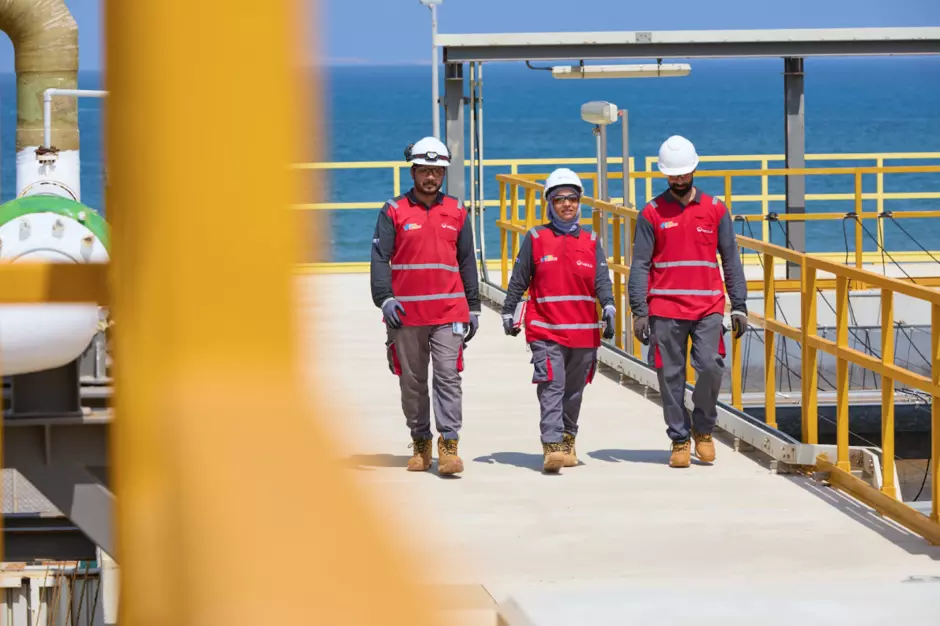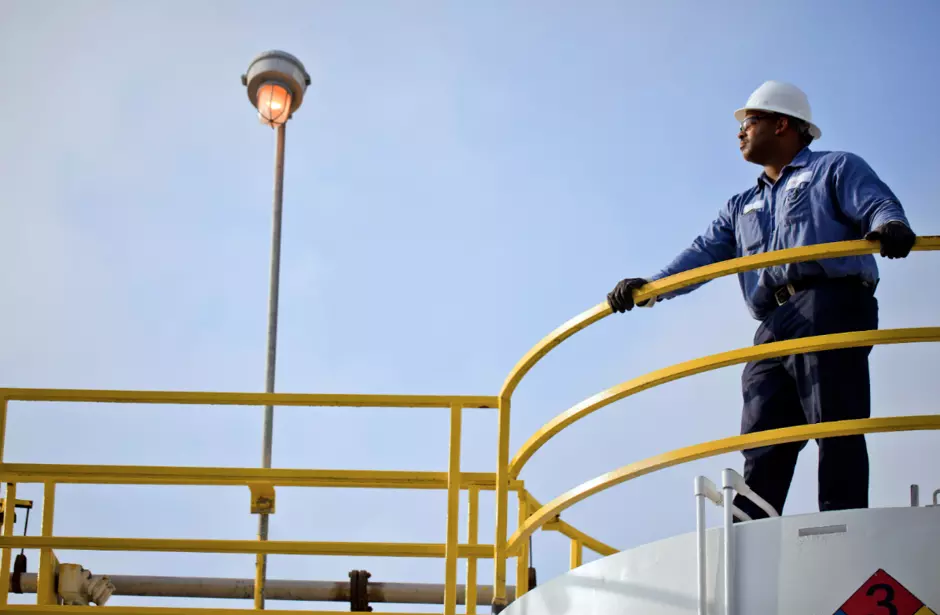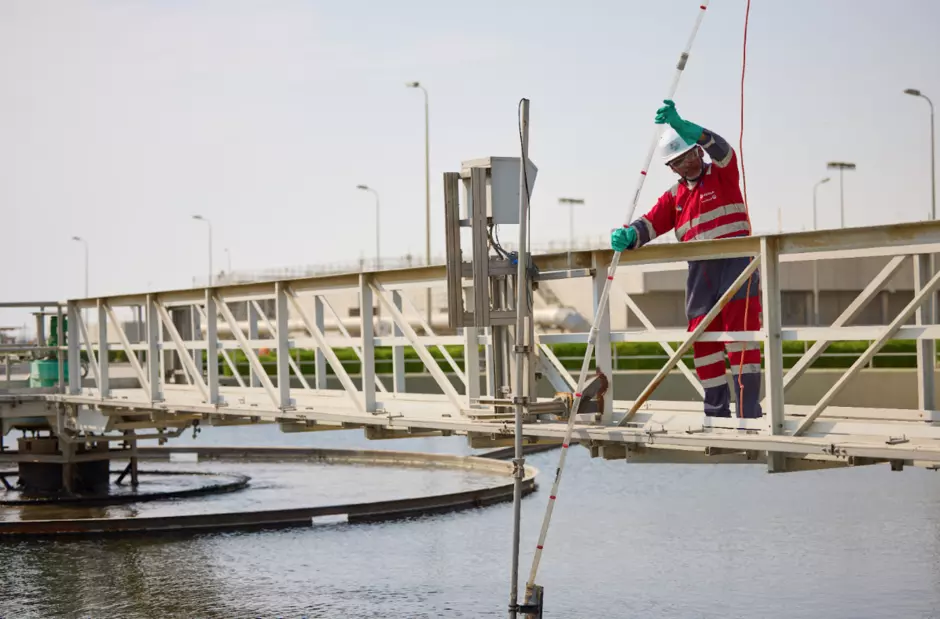The Challenge
Industrial cooling systems, consuming up to 60% of industrial water usage, face significant challenges in the Middle East's harsh environment.
These include extreme temperatures that increase cooling loads and water scarcity that limits water-cooled systems. High energy consumption can strain local grids, especially during peak summer, while humidity levels can reduce the efficiency of cooling technologies. Dust and sand contamination leads to higher maintenance needs. Existing technologies may not be optimized for the regional climate, requiring costly investments in advanced solutions. Additionally, climate change may exacerbate these issues, necessitating innovative approaches and sustainable practices to enhance operational efficiency and resource management.
Solutions
Cooling circuits are vital in heavy industries like oil refineries and chemical plants, where water cools production machinery due to high process temperatures.
Cooling towers, using evaporation to dissipate heat, are crucial for operational stability and safety; minor temperature or pressure fluctuations can severely impact performance and lead to accidents. Tackling Middle Eastern industrial cooling challenges requires a holistic approach: deploying advanced hybrid cooling systems for efficiency and water conservation; investing in solar power for energy demands; implementing consistent maintenance and air filtration for dust mitigation; adopting smart monitoring for optimization and energy saving; and promoting sustainable practices for better resource management and environmental compliance.
Control of yields
Control of yields solution provides complete performance management through integrated monitoring and optimization. It combines real-time efficiency tracking, water quality, and resource management with data analytics.
Features include automated adjustments, process efficiency, heat transfer optimization, and monitoring of water, energy, and chemical usage. The system provides precise temperature control, performance metrics, and predictive maintenance, ensuring optimal yield and maximizing efficiency and cost-effectiveness through continuous monitoring and adjustment.
Hybrid cooling towers
Hybrid cooling towers merge wet and dry cooling for industrial applications.By intelligently alternating between evaporative and dry cooling modes, these towers achieve remarkable water savings of 70-80% compared to conventional systems while maintaining optimal cooling performance.
This advanced technology, equipped with sophisticated control systems, is particularly effective in the Middle East's climate, offering an ideal balance between water conservation and cooling efficiency while reducing visible plume formation and chemical treatment requirements.
Evaporative cooling systems
Evaporative cooling systems are highly efficient solutions designed specifically for dry climates, utilizing the natural cooling effect of water evaporation. These systems can achieve temperature reductions of 10-15°C while consuming up to 80% less energy than conventional air conditioning.
Featuring advanced water distribution systems, smart sensors, and high-efficiency media materials, they're ideal for industrial applications in the Middle East's arid environment. The technology combines effective cooling performance.
Absorption Chillers
Absorption chillers are innovative cooling systems that convert waste heat or solar energy into cooling power, making them ideal for the Middle East's high-solar-intensity climate. Using lithium bromide or ammonia as working fluids, these systems harness thermal energy from manufacturing processes, combined heat and power systems, or solar collectors to produce chilled water.
This technology saves up to 50% energy over traditional chillers, offering a sustainable, cost-effective cooling solution with significantly reduced carbon emissions.

Industrial Cooling System is designed to assist water authorities and industries in enhancing their water network management and infrastructure.
Beyond conventional maintenance services and equipment supply, they provide innovative solutions tailored to meet the specific needs of your water operations. With advancements in next-generation information technologies such as IoT, big data analysis, cloud services, and artificial intelligence, Veolia remains at the forefront of progress. They integrate digital and ecological transformation concepts into their projects, harnessing the full potential of data to achieve refined management and operational efficiency.
This approach helps bridge the gap between production and sales, boosts network efficiency, and enables the water supply system to conserve energy, minimize consumption, and lower emissions.
Feature
details
of industrial water use is for cooling
Cooling accounts forof industrial energy consumption
efficiency in modern cooling towers
of building energy consumption for cooling
energy reduction through district cooling
Avoid million tons of CO2 equivalent at our customers by 2027
Key
figures
Benefits & Value Proposition

Safety and Reliability
Safety and reliability in industrial cooling systems are achieved through increased system stability, reduced equipment failures, enhanced operational safety measures, and improved plant reliability, ensuring continuous and efficient operations.

Water Efficiency
Water efficiency in industrial cooling systems is achieved through strategic reduction in water consumption, minimized environmental footprint through advanced treatment technologies,and sustainable management practices while maintaining optimal system performance.

Yield Control
Yield control optimizes industrial cooling systems through improved production efficiency, enhanced process control mechanisms, consistent output quality maintenance, and comprehensive performance monitoring capabilities to ensure maximum operational effectiveness.

Risk Management
Risk management integrates predictive maintenance, quality assurance protocols, asset protection measures, emergency response capabilities, and continuous monitoring systems to ensure reliable and secure cooling system operations.
🇨🇳 China | Maximizing water reuse in a part of the world subject to severe water stress
In 2007, we were tasked by one of China’s leading chemical companies, Tianjin Soda, to design, finance, build and operate all water-related installations at its Tianjin plant. Over 150,000 cubic meters of water pass through the site’s three cooling circuits every hour. We guarantee safe, reliable and cost-effective operations at the plant. And we also optimize water use, with a 60% reuse rate that limits the impact on local water resources.
🇿🇦 South Africa | Getting cooling systems back on track
We have provided water treatment services to the ArcelorMittal steel works in Vanderbijlpark since 2012. Improving the performance of cooling systems has a direct impact on the speed and efficiency of the steel-making process. We acted swiftly to improve water quality, carrying out a complete review of the choices and concentrations of chemicals used. We also reinforced the site’s health and safety management by conducting a comprehensive audit of exposure to legionella risks.
🇰🇷 South Korea | Reducing the spend on chemicals by 12%
Kumho Chemical, South Korea’s premier manufacturer of resin and rubber, tasked us with providing outsourced operations and maintenance services for the cooling systems at its four production plants. The goal was to reduce costs without compromising performance. We cut the amount spent purchasing chemicals by 12%, reduced the amount of water used and increased the efficiency of the cooling systems. By lowering the amount of energy used, Kumho Chemical was able to meet its quota for indirect emissions of CO2.
Case studies
Discover the experiences of different players






